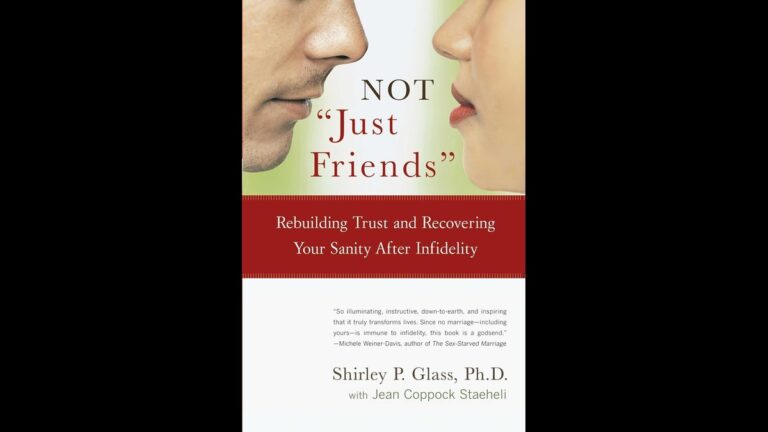Newsday June 19, 2003
Staying Together; Infidelity doesn’t mean the marriage is over
By Debbe Geiger, a regular contributor to Newsday.
Why did Hillary stay married to Bill?
Despite the very public betrayal – in her new memoir, “Living History,” Sen. Hillary Clinton writes that the former president lied to her before admitting to a notorious relationship with White House intern Monica Lewinsky – their marriage has survived almost five years since then.
Which leads to another question: How can the countless other couples in similar situations work toward detente?
By going through certain predictable stages – denial, grief, and, eventually, acceptance – experts say. And suppose the partners are willing to address the turmoil of emotions that accompany revelations of infidelity. In that case, the relationship may be strengthened, although the affair “will always be a little point of pain,” says Michael Zentman, a clinical psychologist in Centerport.
Not surprisingly, infidelity is one of the more difficult problems to overcome, says Karen Solomon, a psychotherapist in Merrick. “Once the trust is broken, there is fear and worry that this person might do it again.” And there are feelings of anger, hurt, guilt, humiliation, insecurity, and revenge, “so many issues for both people to get past. It takes a very committed couple to work things through.”
Counseling, which Clinton credits with saving her marriage, may help both parties come to terms with what happened.
“I don’t know if people can do this alone,” Zentman says. “It’s a pretty tough one to get through. And, if the couple doesn’t work it through, it never gets resolved. It becomes an injury that festers below the surface. A lot of couples break up.”
Just how many is difficult to pinpoint, partly because of differing definitions of infidelity, says Shirley Glass, author of “Not ‘Just Friends’: Protect Your Relationship From Infidelity and Heal the Trauma of Betrayal” (Free Press, $25). “I found that men tend to draw the line with intercourse. Women feel that crossing the line begins with any sexual intimacy.”
Beginning with the Kinsey Institute in 1948, researchers have identified infidelity as a factor in about one-third of divorces. In 1998, the year President Clinton confessed to his wife and the country, 1.135 million couples split up, according to figures from the National Center for Health Statistics.
But, like the Clintons, “two-thirds of the people stay married,” says Glass, who has studied infidelity for a quarter century. “When both partners had been unfaithful, they were more likely to be separated. If the extramarital relationship had deep emotional involvement and sexual intercourse, it was more likely to lead to divorce.”
Those who want to save their relationships learn they must be honest about what occurred. “I don’t mean telling every detail,” Solomon says, “but admitting that they did this and talking about it with their spouse.”
Zentman also warns against saying too much. “I tell couples, as much as you want to know all the details, don’t ask those questions. It becomes too painful and inflammatory. … [I]f they work through it, they won’t want to know the details.”
It’s important for straying spouses to acknowledge they’ve done something wrong. “If they’re just rationalizing it and saying, ‘It was only once’ or ‘It was just about sex,’ they’re not really looking at the damage they’ve done,” Solomon says.
One-on-one counseling may help them take responsibility for their actions and understand the magnitude of the situation. But the healing process takes time, therapists say.
“The person who had the affair usually wants to rush everything,” Zentman says. “That’s the worst thing you can do. You cannot force someone to get over an affair any more than you can force a flower to grow. When the person who has the affair tries to put pressure on the [other] person to get over it faster, that slows down the process.”
The wounded partner must be given time to be angry and hurt. The betraying spouse “created a situation,” Zentman says, and now has “to live with it.”
One way to rebuild trust is by being willing to be on a short leash and account for every moment. “Say, ‘Any time you want to call, call,'” Zentman advises. “This gives the aggrieved a sense of control and access.”
“The hard part is for the couple to look at what precipitated the infidelity. … Supposedly, Bill Clinton was a womanizer,” Solomon says, but “we don’t know if it was something between him and Hillary. Maybe there was something that happened between them, a profound hurt or an argument that pushed one partner away.”
For wounded spouses, humiliation can be enveloped in the torment of having missed clues or of not having been aware enough to prevent the situation. But that’s ridiculous, Glass says. “People write articles on how to affair-proof your marriage,” she says. “In a sense, they’re making the victim responsible for the other person’s behavior.”
Although it may seem counterintuitive, “at its best, an affair can be viewed as a painful but necessary step to heal a relationship,” Zentman says.
“Each person has to look at how the relationship fell apart, and together they can work to rebuild it and take equal responsibility,” says Sandra Fishman, a social worker in Forest Hills. “Look at the strengths that were in the relationship, look at the positive and build on that.”







